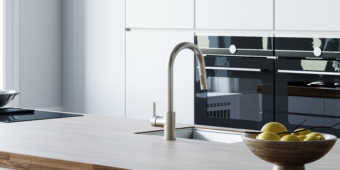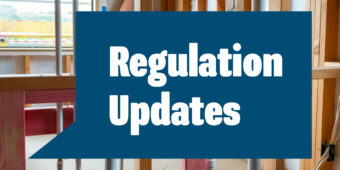HEALTHY HOMES DEADLINE NEAR
24 May 2019, Industry Updates, News, Product Focus

To support tenants’ living conditions in New Zealand, government passed the Healthy Homes Guarantee Act Regulations 2017, which introduced standards that look to make rental homes warmer and drier
Nearly 600,000 households rent in NZ, and 22% of those have no fixed heating, with many more having unaffordable or unhealthy heating. To tackle this issue, the Healthy Homes Act sets minimum requirements to ensure warmer homes for renters through an amendment to the Residential Tenancies Act.
The requirements relate to heating, insulation, ventilation, moisture ingress and drainage, as well as draught stopping. The Act also provides a timeframe for landlords to comply with these standards.
Providing the means to stay warm
The Act will introduce a requirement for fixed heating devices of at least 18°C to be placed in the living room of every house. Most rooms are capable of being heated by a relatively inexpensive portable heater, and the living room is typically the largest room in which most tenants spend most of their time.
Inside the walls
As of 1 July this year, landlords will be required to provide tenants with underfloor and ceiling insulation that meets the 2008 Building Code, or (for existing ceiling insulation) a minimum thickness of 120mm.
This move aligns with research from Otago University, which showed topping up insulation to 120mm results in noticeable health benefits.
Air quality
BRANZ conducted a study which shows that rental homes in NZ have a greater level of visible mould compared to owner-occupied homes.
Mould is a big contributor to poor health outcomes, such as respiratory illnesses and asthma. It also poses a threat to tenants’ possessions.
The Healthy Homes Act states that ventilation must include openable windows in the living room, dining room, kitchen and bedrooms. Extractor fans must be placed in rooms including a bath, shower, or indoor cooktop.
Controlling moisture
Landlords must ensure efficient drainage and guttering, downpipes and drains. A rental property with an enclosed subfloor must have a ground moisture barrier whenever possible.
The standard also requires efficient drainage and guttering as instructed by the Housing Improvement Regulations.
Keeping it sealed
All unnecessary gaps or holes in the walls, ceilings, windows, floors, and doors must be covered and blocked to avoid draughts. This includes chimneys and fireplaces.
Compliance timeframes
1 July, 2019 – Landlords will be required to provide tenants with underfloor and ceiling insulation that meet the 2008 Building Code, or (for existing ceiling insulation) a minimum thickness of 120mm.
1 July, 2021 – From this date, private landlords must ensure that their rental properties comply with healthy homes standards within 90 days of any new tenancy.
1 July, 2021 – All boarding houses must comply with the healthy homes standards.
1 July, 2023 – All Housing New Zealand and registered Community Housing Provider’s houses must comply with the healthy homes standards.
1 July, 2024 – All rental homes must comply with the healthy homes standards.
Penalties
MBIE’s Tenancy Services Compliance and Investigation team will be able to inspect properties to ensure compliance with the standards. Failure to comply with the 1 July deadline this year could attract a penalty of $4,000.
PlaceMakers offer the following solutions, with installation available:
- Insulation
- Heat pumps
- Gas fires
- Wood fires
- Ventilation systems
- Heat transfer systems
- Central heating systems

PlaceMakers provides a range of products to meet these standards. If you want to know more, talk to your PlaceMakers sales representative, ask in branch or visit placemakers.co.nz for more information.
Register to earn LBP Points Sign in
1 Comment
Leave a Reply
You must be logged in to post a comment.




I totally agree with this initiative. The only comment I have is; Why is it limited only to rental accommodation? If the sole purpose is to look after the health of families in this country then why is it considered okay to live in a rental that complies but it is also okay to live in your own home that doesn’t? Surely the rules should apply to all dwellings whether owned or rented, that need to be a minimum standard if the reason for the standard is to protect the health and well being of a family. You can’t separate the two instances. A total contradiction!!